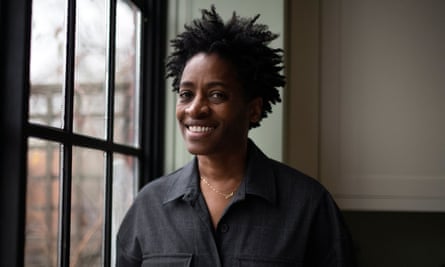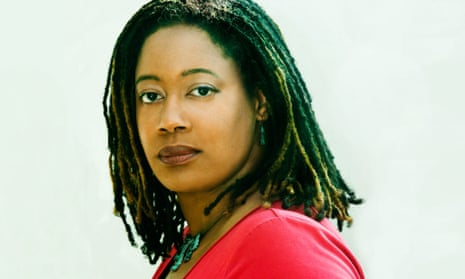NK Jemisin, who four years ago launched a Patreon campaign to allow her to quit her day job and work full-time as a writer, has landed one of the MacArthur Foundation’s “genius” grants, a $625,000 (£486,000), no-strings-attached award.
Jemisin, the first writer to win three consecutive Hugo awards for best novel, is one of this year’s 21 MacArthur recipients, alongside children’s author Jacqueline Woodson and novelist Cristina Rivera Garza. The Foundation praised Jemisin for “pushing against the conventions of epic fantasy and science fiction genres while exploring deeply human questions about structural racism, environmental crises and familial relationships”.
Jemisin’s Broken Earth trilogy is set on a far-future Earth, where there is just one huge continent, the Stillness, wracked by apocalyptic events. As the series opens, a despised “orogene”, who can manipulate tectonic plates, tears a rift through the continent.
“I am writing the stories that I wish someone had written for me when I was younger,” said Jemisin, whose most recent book The City We Became sees New York become a living entity.
“Marginalised people writing about marginalised lives is sometimes perceived as groundbreaking or challenging or threatening because we live in a world in which women and black people are inherently politicised,” she said. “The only way that we can get to the point where our lives are less politicised is to normalise them by just telling our stories and telling our stories in interesting ways.”

Woodson, whose books include the verse memoir Brown Girl Dreaming and Red at the Bone, was praised by the Foundation for giving “diverse readers an opportunity to see themselves reflected in literature”, and for encouraging “all readers to look beyond their own experiences and see the beauty in other human beings”.
Upon learning of her win, Woodson said that for her, writing had “been about creating a road where, as a young reader, there wasn’t one”.
“I wanted to see myself in books because I couldn’t believe the audacity of a ‘canon’ of young people’s literature conjuring me invisible,” said Woodson. “I wanted to say to my young self, ‘You’re loved. You’re beautiful. You’re complicated. You matter.’ I know that by saying this to myself with each book I write, I am saying it to every reader who has ever felt otherwise.”
The MacArthur stipends are paid out in equal quarterly instalments over five years, intended to “encourage people of outstanding talent to pursue their own creative, intellectual, and professional inclinations”.
Rivera Garza, who was born in Mexico and has lived in the US for the last two decades, was praised for her “alternative and fluid conceptions of identity, gender, and relationships”, which the Foundation said are “increasingly important at a time when marginalised and border communities are being dehumanised”. Her most recent novel to be translated into English, The Taiga Syndrome, follows a female detective in search of a man and a woman who have fled into a labyrinthine forest.
Poet and cultural theorist Fred Moten was awarded his grant for “creating new conceptual spaces to accommodate emerging forms of black aesthetics, cultural production and social life”, while historian Natalia Molina was named for work that reveals “how narratives of racial difference that were constructed and applied to immigrant groups a century ago continue to shape national policy today”.
Cecilia Conrad, managing director of the MacArthur Fellows programme, said the 21 recipients were exceptionally creative individuals. “They are asking critical questions, developing innovative technologies and public policies, enriching our understanding of the human condition, and producing works of art that provoke and inspire us,” she said.
